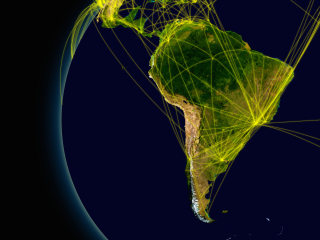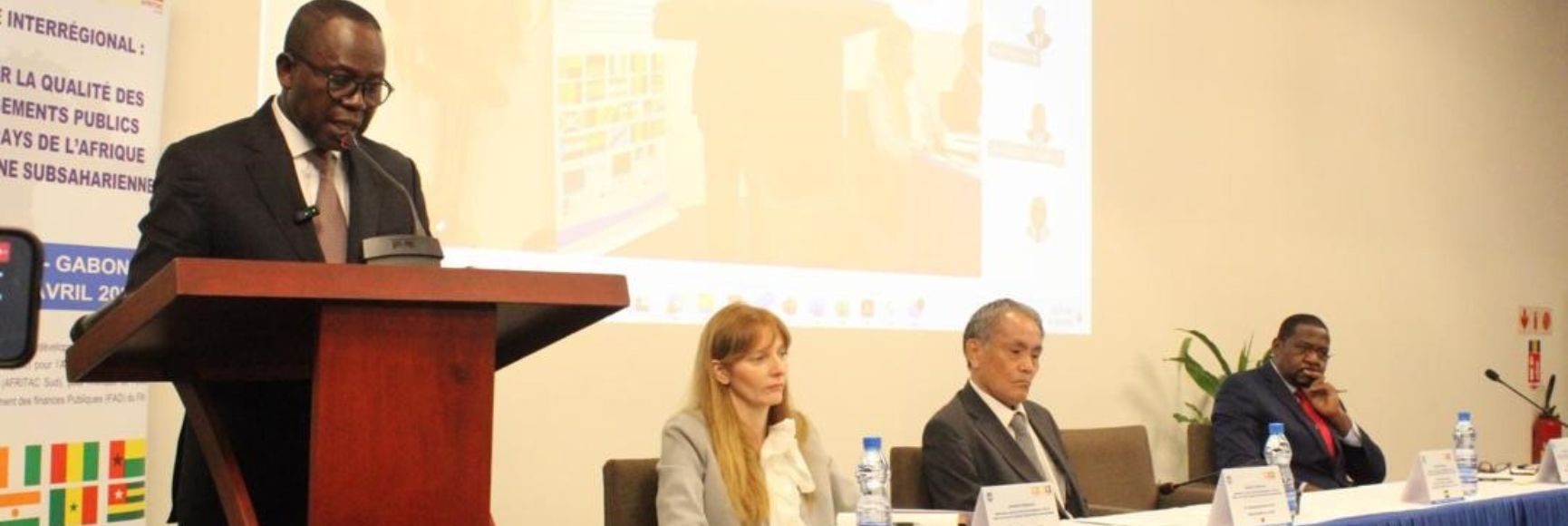
Posted by Katherine Baer and Gerardo Uña[1]
A seminar on Digital Innovation in Public Finance was organized by the IMF’s Fiscal Affairs Department and the Inter-American Development Bank (IDB), with the support of the Ministry of Finance of Peru and the Peruvian Tax Agency (SUNAT). The seminar took place in Lima, Peru on September 26-27.
The event covered topics relating to digital innovation in tax policy, tax administration, and public financial management (PFM). It provided an opportunity for senior tax and budget/treasury officials from most of the South American countries (Argentina, Brazil, Chile, Colombia, Ecuador, Paraguay, Peru and Uruguay) to share their recent experiences in introducing digital innovations. An opening session highlighted some of the main themes of the FAD publication Digital Revolutions in Public Finance and set the stage for further discussions.[2] Participants from other countries, including the U.S. Internal Revenue Service, the Mexican tax administration, and the French Treasury also discussed their experiences.
Some of the seminar’s highlights were as follows:
- FAD made a presentation on national and international tax policy challenges that both users and providers of digital services pose.[3] The presentation highlighted how digital platforms are potentially fostering an increase in small business growth and forcing governments to revisit previous trade-offs when setting tax thresholds. At the international level, a key issue is how to determine taxing rights and the apportionment of international corporate profits. Related to this topic, the representative from Uruguay’s tax administration made a presentation on the approach his government is taking to defining “source” country or income. Uruguay is a useful case study on how smaller economies can establish taxing rights based on a pragmatic approach to the challenges that international service providers such as Google and Uber are presenting to developing countries.
- Tax administrations in the South America region are rapidly adopting new digital methods and tools, such as machine learning, data analytics and cloud computing, especially for purposes of control (audit and compliance monitoring). Chile, Colombia, and Peru, as well as Mexico are making significant strides in this area. Tax directors highlighted the importance and role of the VAT e-invoice for ensuring that VAT-able transactions are automatically recorded and as a basis for improving VAT compliance. However, only a few countries (Chile, Peru) have linked the new e-invoicing system to broader VAT compliance improvement initiatives or could show concretely how taxpayer services/satisfaction had improved, or compliance costs had fallen. One presenter emphasized that integrating data and analytics into the tax administration’s core operations is much more a management and organizational challenge than a technological one. He pointed out that even advanced tax administrations have a tremendous amount of ‘data’ but not much ‘information’, a problem that many tax administrations of the region are also experiencing. VAT e-invoices are especially challenging. They generate enormous amounts of data but a clear framework for analyzing these data is often lacking.
- The latest technological and digital innovations in PFM systems were also discussed. A FAD presentation on using daily fiscal data for real time macroeconomic surveillance attracted much interest, not least because South America is a leader in terms of availability of these data.[4] In the PFM area, Brazil is clearly the most advanced in the region. The Brazilian Treasury is adopting machine learning to perform routine tasks that Ministry of Finance staff previously carried out and is piloting the use of blockchain technology for issuing Treasury bills. South American countries continue to promote initiatives to modernize their Financial Management Information Systems (FMIS), but innovative approaches such as a modular approach or using the FMIS as a platform are still in the initial stages.[5]
- Most countries in the region are facing challenges in improving cybersecurity and using cloud computing more intensively. While more secure technologies (such as blockchain) are being adopted, there is much work to be done to ensure that both the revenue and treasury/budget agencies in the region have robust systems to ensure the confidentiality and security of fiscal information.
To summarize, most South American countries have embarked on an ambitious path of digital and technological transformation in the fiscal area. The newly adopted IT systems—and digital innovations—are often sophisticated and potentially useful. A main challenge in the medium term is ensuring that the significant resources that countries are investing in new technologies, training staff, reorganizing structures, and generating large volumes of data, result in improved tax compliance, lower costs of compliance and administration, and more efficient and effective public expenditure.
[1] Katherine Baer is Assistant Director in FAD and Gerardo Uña is Senior Economist in FAD.
[2] Sanjeev Gupta, Senior Fellow at the Center for Global Development and former Deputy Director in FAD, delivered a keynote speech on digital innovation and its implication for the public finances from a broader international perspective.
[3] Aqib Aslam (FAD).
[4] Florian Misch (FAD).
[5] This topic was discussed in panel presented by Carlos Pimenta (IDB) and Gerardo Uña (FAD).
Note: The posts on the IMF PFM Blog should not be reported as representing the views of the IMF. The views expressed are those of the authors and do not necessarily represent those of the IMF or IMF policy.





